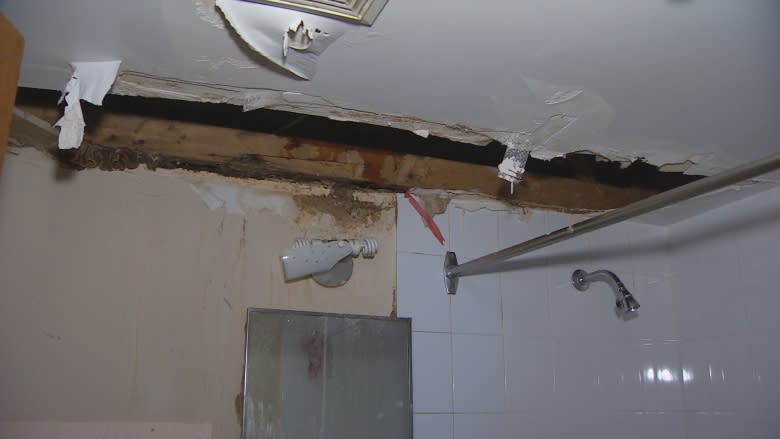Low income housing issues linked to provincial rules, legal workers says
The problems with housing for people on income assistance are more complicated than they may seem, a Nova Scotia community legal worker says.
Earlier this week a vermin-infested apartment building in Fairview was evacuated and shuttered after Halifax officials found fire safety violations and rundown living conditions.
The tenants, most of whom received provincial income assistance, had to find new homes. The landlord instead blamed some tenants for running down the property.
"The legislation and the policies in that department really make it impossible for landlords to really stay in that business and make a decent living," Megan Deveaux of Dalhousie Legal Aid told CBC's News at Six on Friday.
"This is why we're seeing more and more landlords getting out of that particular market."
'Well below the poverty line'
Single people with no dependents, who are on income assistance in Nova Scotia, can be eligible to receive a maximum of $535 per month for a shelter allowance. That includes covering rent, all utilities and tenant insurance.
That money is paid directly to the landlord, but rent and other living expenses often surpass it. The tenant has to dip into their personal allowance to top it up.
"We're talking people living well below the poverty line," Deveaux said.
Complaints are widespread about the system. This summer, a woman told her story of paying $675 for rent a month, while receiving only $535 toward that.
In Yarmouth, an anti-poverty advocate said single men are turning to living outdoors, unable to afford an apartment on the allowance.
'Very simple solution'
That full allowance is only possible when renting a one bedroom or bachelor apartment, Deveaux said. People who share an apartment or rent in a rooming house receive less.
"A very simple solution would be to increase the shelter allowance," Deveaux said.
"An even better solution would be to allow people on income assistance to have a roommate."
The province is aware that most income assistance tenants struggle to pay their rent each month, she said, because Department of Community Services staff review their leases.
The allowance simply does not reflect the landlord's real overhead costs, she said, while at the same time, forces low income people to tighten budgets to afford adequate housing.
That struggle creates "risk for the business," pushing landlords into other, more stable markets, Deveaux said.




